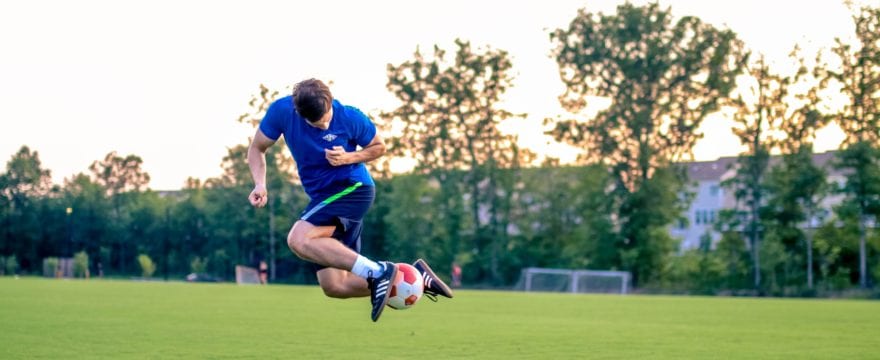
Soccer is a great sport for kids – and many of our talented youth have aspirations of going pro.
This can be a little overwhelming for parents, who often don’t know the right steps to follow in helping their children work toward such a goal.
It’s especially intimidating if you’re worried about maintaining a healthy balance between sports and school work.
At Sports Movement, we’re all about developing healthy lifestyle habits. So to help you out, we compiled a quick guide on how to become a pro soccer player.
How Do I Become a Pro Soccer Player?
In the US, the path to success as a professional soccer player is different than in Europe. Part of the reason for this is soccer hasn’t been a very popular sport here until recently.
The good news is, if your kid has been asking, there’s an answer.
You’ll need to start young (preferably) so they can spend years building the necessary skills. If their school doesn’t have a soccer program available, ask around – one of the other parents is bound to know someone!
Soccer Camps

An important aspect of going pro as a soccer player is attending soccer camps.
It’s tempting to think every soccer camp is going to be the same, but that’s simply not true. Some camps only have one coach, which can make it difficult for young players to learn different playing styles and techniques.
Summer soccer camps and winter soccer camps also differ in that they expose young soccer players to different playing conditions.
After all, when they’re playing in the World Cup, they won’t have the luxury of choosing the weather on match day.
Balancing School and Becoming a Pro Soccer Player
At about 13, both soccer training and school start getting more intense. Many parents worry school work will suffer as a result.
It’s a difficult situation. Unfortunately, even the most skilled young players aren’t guaranteed to start a successful career as a professional soccer player.
Encouraging – and rewarding – good academic behavior is very important during this stage. Kids need to know that, even if they don’t see a connection between their dream job and their studies, both are important for a healthy lifestyle.
At the same time, don’t let them neglect their soccer training! Being active has academic benefits too.
Another Option: High Performance Academies

Here in the US, we’re fortunate to have high performance academies available.
These are kind of like boarding schools for high schoolers, but with a focus on soccer careers.
In addition to some of the best soccer training available (many European parents send their kids to American high performance academies!), you can also rest assured your kid will be getting top-level academic training too.
There is a catch, however. In order to get into a high performance academy, your kid needs to first attend one of their entrance trials and/or one of their special soccer camps.

Only the best of the best art able to get in, which is another reason it’s so important to start young.
One of the other major benefits of attending a high performance academy is their players compete against only the best of the best in the nation too.
This means there’s always plenty of attention from talent scouts, which can help to fast-track your kid’s path to becoming a professional soccer player!
But wait, there’s more!
Europe vs. United States
Something else to consider is that the location of the high performance academy will determine the professional opportunities made available.
This is for obvious reasons, of course. US-based high performance academies have connections with US colleges and the American Major League Soccer (MLS).
High performance academies in England, on the other hand, have better connections with clubs that produce players for the English Premier League.
And Barcelona’s high performance academy has the same advantage toward the La Liga Spanish football league.
Discuss your kid’s goals and dreams with them to determine the best option for everyone involved.
How Sports Movement Can Help

Sports Movement offers different services that can help your child go pro.
From after-school programs (age 4-15) and private camps (different skill levels) to private training (1-on-1 or in small groups), we have it all!
Sign-up today and see what we can do for your budding young soccer professional!

I have learned I don’t have to become a pro to coach kids. Thanks for the resources.